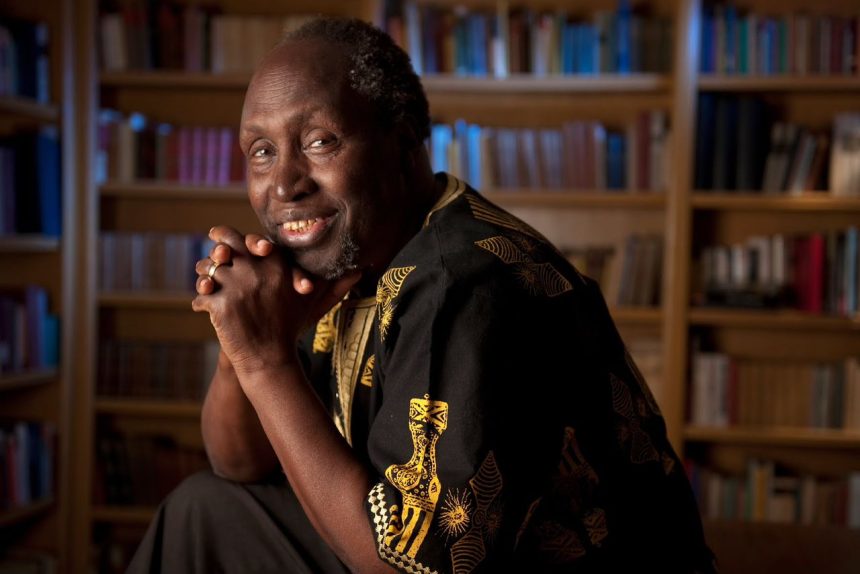Giant of African Literature Ngũgĩ wa Thiong’o Dies at 87
Renowned Kenyan writer and literary icon Ngũgĩ wa Thiong’o has died at the age of 87, his family announced Wednesday.
“It is with a heavy heart that we announce the passing of our dad, Ngũgĩ wa Thiong’o. He lived a full life, fought a good fight,” his daughter Wanjiku wa Ngũgĩ wrote in a Facebook post.
Although the exact cause of his death has not been confirmed, Ngũgĩ was reportedly undergoing kidney dialysis at the time of his passing.
ALSO, READ: 42 people were killed in weekend attacks in Nigeria’s Benue state
Born James Thiong’o Ngũgĩ in 1938, during British colonial rule in Kenya, he grew up in the town of Limuru in a large family of low-income agricultural workers. His early experiences under colonialism profoundly shaped his worldview and creative voice.
Ngũgĩ’s literary career spanned nearly six decades, during which he became a powerful voice for African identity, language, and resistance. In the 1970s, he made the bold and controversial decision to abandon English and begin writing in Kikuyu and Swahili—an act that challenged colonial linguistic legacies and inspired generations of African writers.
His decision was deeply personal. He once recounted returning home from Alliance High School—a prestigious missionary-run institution where his parents struggled to afford tuition—only to find his entire village destroyed by colonial authorities. His family was among thousands detained during the British crackdown on the Mau Mau uprising. In one of the most searing losses of his life, his deaf brother Gitogo was fatally shot in the back for failing to respond to a command from a British soldier.
Ngũgĩ was also a political prisoner. In 1977, he was arrested and jailed for a year after co-writing and staging a play that was critical of post-independence inequalities in Kenya. From his prison cell, he wrote Devil on the Cross on toilet paper—the first modern novel written in Kikuyu.
He would go on to author several acclaimed works, including Petals of Blood and A Grain of Wheat, but perhaps none more influential than Decolonising the Mind (1986), in which he argued that it is “impossible to liberate oneself while using the language of the oppressors.”
Ngũgĩ wa Thiong’o’s impact transcended literature—he was a fierce advocate for cultural pride, linguistic justice, and the power of memory. In his own words, he once described Kenya’s post-independence elite as “the death of hopes, the death of dreams and the death of beauty.”
Following news of his passing, tributes have poured in from across the globe, hailing Ngũgĩ as a fearless voice of conscience and a towering figure in African letters.








